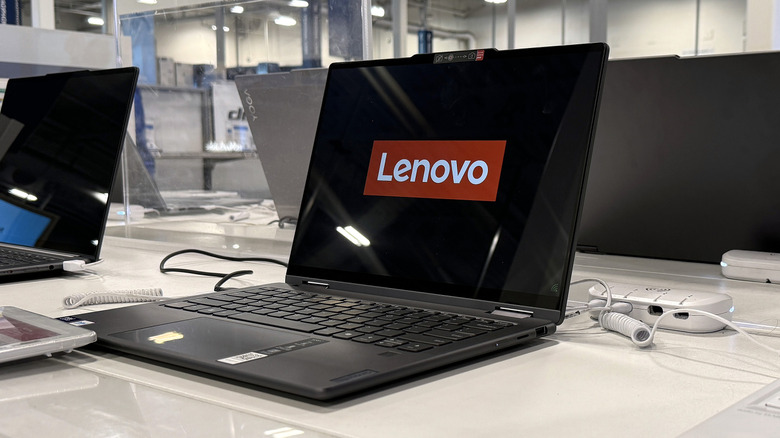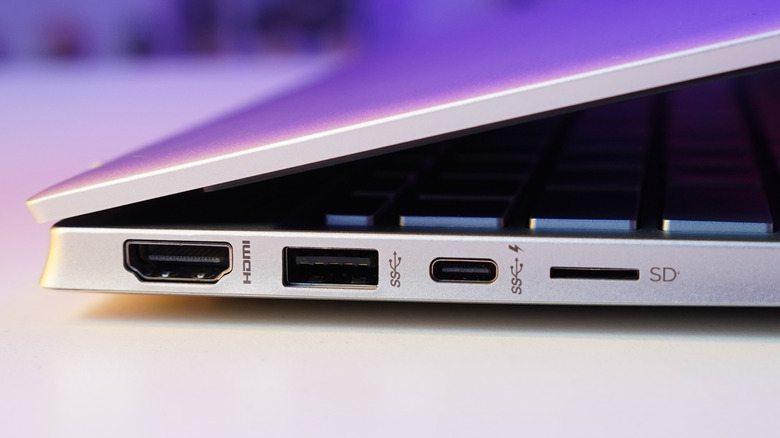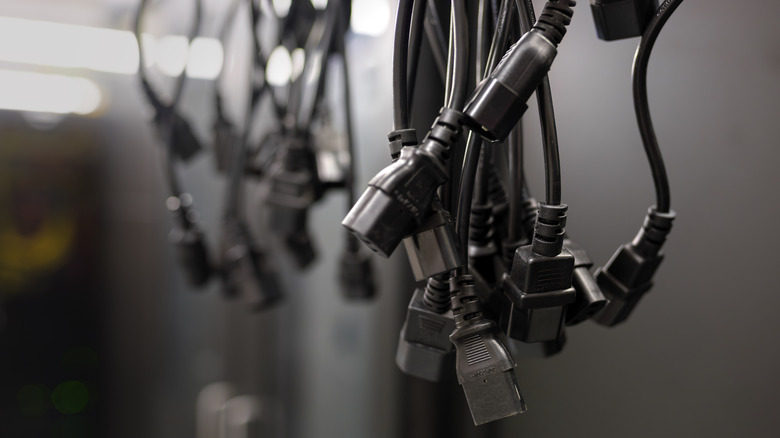Is It Safe To Use A Different Laptop's Charger To Charge Your Computer?
If you have a laptop, there's a good chance it came with a proprietary charger. But if you forget to pack the cord before traveling, or it gets damaged, you can run into the issue of a dying laptop with no way to charge it.
The problem with proprietary chargers is that they're only compatible with the device they're made for. This makes it so that you need to pack it alongside a slew of others when on the go, and it could prove inconvenient to use dependent on the wire length and charger size. Moreover, these chargers can be expensive to replace should they get damaged, making for another reason to keep them at home.
While companies don't recommend using any charger other than their own, depending on your laptop, there may be another solution. While you can't use just any laptop charger with any laptop, you may be able to use a simple USB-C charger, like the one you use for your phone, instead.
Can I use a USB-C charger with my laptop?
Whether you can use a USB-C charger will depend on your laptop. Still, there is some good news — not only did the European Union mandate that mobile devices needed to be USB-C compliant by the end of this year, they also made it a requirement that laptops will require USB-C charging by Spring 2026. As such, many manufacturers, including Apple, have begun making laptops that charge via USB-C, even outside the E.U.
If your laptop still uses a proprietary charger, you'll need to check to see if it has a Power Delivery USB-C port. Power Delivery (PD) is a USB standard that, given other improvements, allows increased power levels for charging, making it easy to get enough power to charge most laptops.
Moreover, charging via USB-C PD is very safe. Power Delivery has an adjustable power supply mode and the ability to manage power properly, so the likelihood of the charge sending too much wattage to your laptop and causing damage is extremely low.
It's important to note that not every USB-C plug can charge a laptop. USB-C Power Delivery ports are specifically created with the Power Delivery protocol in mind, which allows up to 100W in charging capabilities. Normal USB-C ports are not built with this protocol in mind, so they can only transmit data or be used to plug in peripherals. You can try plugging a charger into a non-PD USB-C port, but it won't do anything.
Why do companies recommend their own chargers?
Despite the low risk of a laptop being damaged with a USB-C charger, companies often advise against using anything other than a proprietary power cord.
One big reason has to do with wattage. If you use a charger that doesn't match the wattage needed for your laptop, the battery will charge extremely slowly (if at all) and, in the case of too high wattage, you risk damaging your laptop. Even if a third-party proprietary charger fits in your laptop, you need to check to ensure the watts match your laptop's recommended range. USB-C PD makes this less of an issue, but it still has limits — if you have a laptop that needs a lot of power to charge, PD may not be able to charge it efficiently.
Another reason are transformers – the bulky block attached to some laptop power cords. This transformer takes the wattage coming from the AC plug and stabilizes the electrical power, ensuring that your laptop gets the correct amount of power at all times.
Considering the nature of electricity and wattage, companies often only recommend using their chargers because they're built specifically to meet your laptop's power needs and lower the risk of the laptop being damaged — even if the chance was small to begin with.


